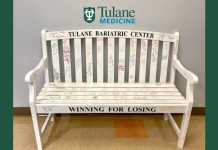The arrival of your bundle of joy is one of the happiest, life changing moments you’ll experience. You’ve read the books, visited blogs and websites and talked to other moms, but there’s one important thing many women are NOT prepared for: the physical stress on your body that continues after delivery.
See if any of these apply to you:
- Do you have pain or discomfort that you did not have pre-pregnancy or pre-partum?
- Do you accidentally squirt (leak urine) when you laugh, sneeze, cough, jump or do just about anything?
- Have you been unable to _________________ (enter your favorite pre-pregnancy activity) because of pain/weakness/squirting?
- Do you have pain in your low back, buttock, or down your leg?
- Have you avoided intimacy with your partner because of pelvic floor pain/discomfort?
No doubt the majority of you answered “yes” to one (if not all) of the above questions. The good news: you are not alone, and you are not without a solution!
Physical Therapist: a new mom’s best friend
A physical therapist can help you get your life and body back. Physical therapy can help all of these issues without medication, surgery, adult diapers or abstinence.
Most people, including doctors, don’t know that there is a field in the profession of physical therapy dedicated to the diagnosis, treatment and prevention of woman’s health issues. These include (but are not limited to) pelvic floor pain, sexual dysfunction, incontinence, low back pain, sciatica, and the female athlete triad. While these issues are quite personal, if left untreated, they can significantly impact a new mother’s quality and enjoyment of life.
Back Pain?
The most universal issue that post-partum woman deal with is low back pain and sciatica. During pregnancy, specific hormones are produced causing the mother’s ligaments to become laxed. When this happens, the pelvic bones and lumbar (low back) spine segments begin to shift and rotate.
Picture your pelvis as the foundation and cornerstone of force transmission in the body…when it is “out of whack,” then everything else is “out of whack.” All of the muscles that attach to the pelvis – there are about 35 – will respond to these shifts in their foundation by going into muscle spasms. This subsequently causes pain in the low back and buttock, and when tight muscles put pressure on the sciatic nerve, pain down the leg as well.
If left untreated, the new mother has the potential to have a lifetime of back pain. A physical therapist will stop and reverse this pain, muscle spasm, and low back instability with manual and massage therapy, modalities, therapeutic exercises (core program, yoga, Pilates, etc.) and aquatic therapy.
The “I” Word
Another issue most new mom’s deal with, even if they don’t like to talk about it, is incontinence. During vaginal delivery, the pelvic floor stretches significantly and sometimes tears. Doctors will often make a cut through the pelvic floor prior to delivery (episiotomy) in effort to avoid tearing. When a muscle is torn or cut, it is unable to work as effectively as it did prior to injury. Physical therapists who specialize in women’s health can retrain your post-partum pelvic floor using weight training (yes, weight training), Kegel exercises and biofeedback in order to discontinue unwanted incontinent episodes.
C-Section Scars
For those that delivered via cesarean section, there is a high prevalence of back pain following any major abdominal surgery due to several factors, including:
1. Scarring underneath the skin and subcutaneous tissue becomes very dense and adheres itself to anything and everything, and
2. Cutting through the abdominal muscles vastly changes the stability of the core (and low back).
Physical therapists are highly trained in myofascial release and massage for scar tissue. They also understand the mechanics of how “the core” (a group of muscles consisting of the abdominals, paraspinals, diaphragm and pelvic floor) functions synergistically to optimize low back health. Your physical therapist can guide you through an exercise program targeted at retraining your abdominal muscles to reestablish your core, as well as provide you with a home exercise program to continue core training as a part of your daily routine.
It is important to remember that just as you can choose which doctor you go to, you can also choose your physical therapist. Look for a women’s health specialist near you so that you back to the things you love doing!
Claire Melebeck
Claire Melebeck, PT, DPT, is a 2009 graduate of LSU Health Sciences Center in Shreveport where she received her  Doctorate in Physical Therapy. Claire stayed with the LSU system for an additional year to complete a residency in orthopedics and practice management. Claire is a manual physical therapist who specializes in the treatment of patients with neuro-musculo-skeletal pain syndromes and women’s health issues. Her primary areas of interest are headache, TMJ syndrome, and chronic pain.
Doctorate in Physical Therapy. Claire stayed with the LSU system for an additional year to complete a residency in orthopedics and practice management. Claire is a manual physical therapist who specializes in the treatment of patients with neuro-musculo-skeletal pain syndromes and women’s health issues. Her primary areas of interest are headache, TMJ syndrome, and chronic pain.

















I will be the first to admit that I had no idea there was an area of PT dedicated to this – fascinating and so interesting. Thank you for sharing this morning!
Didn’t know about all this….some things to consider.
Very interesting and informative article. I was unaware about PT working in this stream. It was a great read. Thanks for sharing.